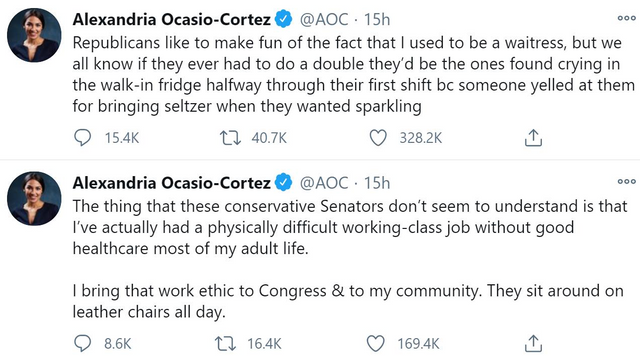
Why is it acceptable in 21st century America to be intolerant of Republicans or Democrats, liberals or conservatives, Trump supporters or Bernie bros, capitalists or socialists or communists, while it is unacceptable to be tolerant of anti-Semites, Islamophobes, homophobes, transphobes, misogynists, sexists or racists? What’s the difference? What distinguishes one group of haters from another or one kind of intolerance from another?
I used to think that the basis for unacceptable intolerance – as distinct from acceptable intolerance – was to be found in the immutability of the target group’s characteristics. If they can’t change who they are, is it legitimate to criticize who they are? One cannot alter one’s racial or ethnic heritage. One cannot change one’s genetically inherited physical features – at least not easily or cheaply. But certainly, in America, one can change one’s religious affiliation, one’s political party, or one’s economic philosophy. No one in America is stuck with being Shlomo or Mahmud. You can change your name. No law in this country prohibits conversion from one religion to another or renouncing religion altogether. No one in the United States is required, against their will, to remain a Muslim or a Mormon, an evangelical Christian or a Chabadnik. So it can’t be that religious intolerance is unacceptable because people can’t change their religion. In America, they certainly can. And yet, it’s considered the worst form of condemnable intolerance to malign someone’s religious faith. Why?
“Congress shall make no law respecting an establishment of religion, or prohibiting the free exercise thereof…” These first two clauses of the First Amendment were designed to protect religious freedom and to prohibit the designation of a favored religion, but these clauses do not protect anyone from being on the receiving end of an anti-Jewish or anti-Christian or anti-Muslim slur.
Why should it be socially acceptable to attack people for their politics but not for their religion, when, in this country at least, we are free to change our religion as well as our politics?
These musings were prompted, in part, by an article I read online about Alexandria Ocasio Cortez (aka AOC) which cited her recent tweets in which she trashes Republicans as people who’ve never engaged in physical labor: “Republicans like to make fun of the fact that I used to be a waitress, but we all know if they ever had to do a double they’d be the ones found crying in the walk-in fridge halfway through their first shift…” It’s clever. It’s cute. It’s nonsense! If Republicans really did make fun of AOC’s waitressing, that was stupidly classist. For AOC, apparently, that justified her insulting Republicans as people who have never done any real work in their lives. But that’s just a baseless, old, negative stereotype, like “country club Republicans” or “armchair liberals,” like “lazy Mexicans” or “shiftless Negroes.” We rightly reject negative racial stereotypes. Should the perpetrators of political stereotypes get a free pass?
So, again, I ask, wherein lies the difference between acceptable and unacceptable disparagement of a group of people? Is mutability the differentiator? Being Mexican-American or African-American is an unchangeable, permanent condition. But being Republican or Democrat, capitalist or socialist, Christian or Muslim – these are conditions that can change. We can change them.
Is it, then, okay to denigrate people for what they can STOP thinking or believing or doing or being and not okay to rip them for what they cannot change, even if they wanted to? If that is the appropriate distinction to be drawn, then perhaps we need to look more closely at what conditions about ourselves we can actually change and which ones we can’t.